|
|
|
Review
|
|
|
|
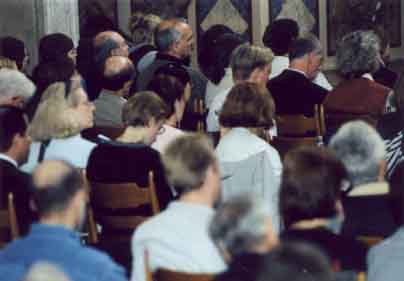 |
|
Conference participants |
|
|
|
Uneasy Memory
Conference on the Holocaust and its Repression in Austria
(English Translation from Sueddeutsche Zeitung, Germany, 11 September 1999)
More than 300 delegates from Germany, the UK, Holland, Israel, the Czech Republic, Australia, New Zealand, the US and Austria spent three days at the crowded University of Vienna - squeezing in, discussing and becoming het-up and involved. At issue was the process of historical denial and assigned roles. In light of the history of denial of the Holocaust in post-war Austria, it is still far from self-evident that this could happen at the beginning of September in Vienna during an international conference for survivors and descendants of victims and perpetrators of National Socialism.
After 1945, there was only silence concerning why there was so much enthusiasm for the "Anschluss" in 1938 - and as to what extent Austria, after its unification with the Third Reich, took part in the aryanisation process, persecution and extermination of those racially and politically deemed undesirable. The Austrian Republic officially considered itself as a 'victim of Fascism', and was perfectly comfortable with that role. Only by the end of the '80s was the concept of victimhood and Austro-Fascism questioned, when President Kurt Waldheim shockingly played down his military past, and therefore provoked an international debate. In 1991, Chancellor Franz Vranitzky stirred the conscience of Austrian citizens by officially admitting for the first time, that Austria was partly responsible for the Holocaust.
|
|
|
|
|
|
|
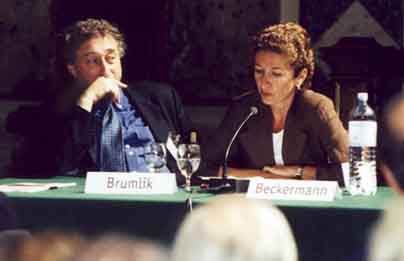 |
|
Lecture Brumlik / Beckermann |
|
 |
|
|
Today, the debate continues - still too slowly and too half-heartedly. Yet in his analysis of post-war politics in Austria, its views on the Holocaust and attitude towards survivors, published this spring (See SZ 12.8.), Jerusalem-based historian Robert S. Wistrich finds that the Holocaust is now critically discussed by an Austrian public.
The Vienna conference confirmed that the attitude towards complicity is changing amongst the self-declared victims. Academic Claudia Kuretsidis-Haider, in her talk 'repressed guilt - forgotten revenge', spoke on the history of the Nazi-trials in Austria, explaining why during the first decade of the Second Republic these trials were absent from public discourse. In her view, doctoral-theses on Austrian concentration camps, and the '60's and '70's history of justice, were "ignored by colleagues in academic history departments". However, in December 1998, a research centre on post-war justice was established. Similar to its German counterpart in Ludwigsburg, it aims to contribute to the examination of NS-crimes in Austria - "a very late contribution against the forgetfulness", commented Kuretsidis-Haider.
|
|
|
|
|
|
|
|
 |
|
|
Panel 3 September: Sarkoezi · Lappin · Baranyai · Martl |
|
|
|
Former judge and author Heinrich Gallhuber, explained the development of laws on National Socialist activities in post-war Austria, how they were carried out in practice, and how they changed over time: "Unfortunately, neither an atmosphere where the majority of the population firmly opposed National Socialism and its post-war incarnations, nor the administration of justice through anti-National-Socialist judges, has at all times been self-evident, and it still isn't."
Wolfgang Benz emphasised that to her German neighbours, the Austrian lack of admission in connection with Holocaust involvement should not provide grounds for (German) self-righteous satisfaction. The Professor from the Technical University, Berlin, and director of the Centre for Antisemitic Research, called the German de-nazification process a counterpart of Austria, but not a success. He pointed out that the efforts of the Allies had a crucial role in relation to the treatment of the perpetrators. What would have happened, he questioned, if in former Hitler-Germany, this had been left to the Germans? Would the German justice system have developed the necessary enthusiasm?
|
|
|
|
|
|
|
|
 |
|
|
Panel 1. September: Brumlik · Beckermann · Pulzer · Huemer · Strauß · Uhl |
|
|
|
The wide range of talks and workshops provided by this kind of symposium does not always lead to the complete satisfaction on the part of delegates - they need to check and to choose. Included in the programme were talks on the situation of the Roma and Sinti, who denounced the official refusal to acknowledge them, and the failure and faults of the Austrian policy of compensation.
The ways in which perpetrator societies deal with compensation demands by Jewish victims and their descendants, is another question that remains unresolved. Lawyer Willi Korte, founder of the Holocaust Art Restitution Project, pointed out that the problem of restitution and the need to regulate them, has been known for many years. Sued-Deutsche Zeitung journalist Michael Stiller, provided examples of how Nazi-victims from the former Soviet Union, have been prevented from registering their claims. And tireless Anna Rosmus from Passau, who has been uncovering Nazism and anti-Semitism for years, proved how many applicants immediately after 1945have been refused and turned down by systematic obstruction by the authorities.
|
|
|
|
|
|
|
 |
|
|
Panel 2 September: Broukal · Kothbauer · Rosmus · Sarkoezi · Jahoda · Korte · Einem |
|
|
One project in relation to Viennese memorial culture, has been solved rather quickly: British sculptor Rachel Whiteread is undertaking the Memorial on the Judenplatz (Jewish Square) in Vienna. Her proposal of a 'book-house' turned inside out will symbolise the extinction of Jews and their culture. Critics feel that apart from the graphic impact of Alfred Hridlicka's memorial for anti-Fascism with the street-scrubbing Jew in front of the Albertina, her proposal is aestheticising. "At least it took only four years for the decision, in contrast to the tribulations, pains and complications Berlin had with its Holocaust memorial", someone commented.
The organisers of the conference - the London-based Second Generation Trust; the Institute for Comparative Studies of History, Berlin; the Viennese grassroots organisations Arche and Verein zur Erforschung nationalsozialistischer Gewaltverbrechen und ihrer Auswirkungen as well as other sponsors - tried to take the emotional sensitivity of the delegates into consideration by including workshops, presentations of projects and open forums into their programme. An encounter of victims and perpetrators and their descendants is necessarily full of conflicts. More than anything, however, it proves the need for knowledge and instruction mainly in the Third Generation. This was obvious in the intense reactions towards a TV-documentary from Germany on the unusual friendship between the son of a persecutor and a victim of the Holocaust. It also became clear through the interest in several international encounter groups, where descendants try to find a way out of the situation of silence and defensiveness.
|
|
|
|
|
|
|
|
|
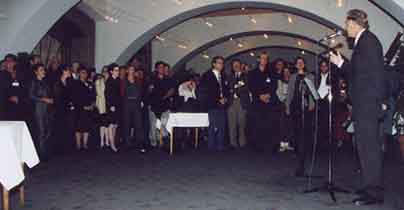 |
|
|
|
|
 |
|
|
Reception by the city of Vienna |
|
|
|
The research of sociologist Gabriel Rosenthal from Berlin on transgenerational consequences of Nazi-crimes and their denial for children and grandchildren particularly showed one thing: Questions about the backgrounds of these crimes and their aftermath for the biographies of both descendants of victims and perpetrators will not stop - they cannot and must not stop.
Birgit Weidinger
Translation: Marion Hamm
|
|
|
|
|
|
|
|
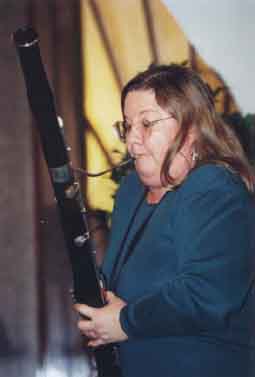 |
|
|
Lynn Gaubatz |
|
|
|
|
|
|
|
|
|
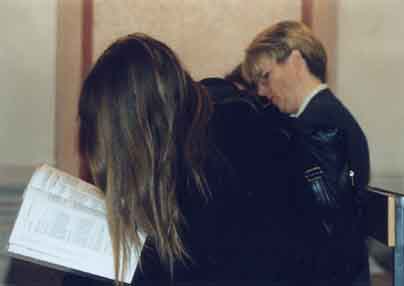 |
|
|
Auditorium |
|
|
|
|
|
|
|
|
|
 |
|
|
Workshop |
|
|
|
|
|
|
|
|
|
 |
|
|
Workshop |
|
|
|
|
|
|
|
|
|
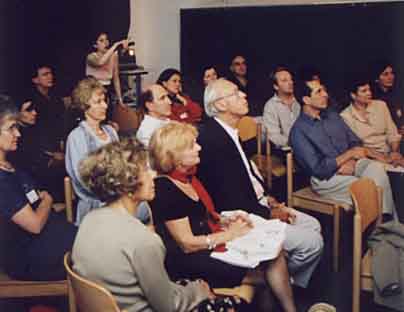 |
|
|
Workshop |
|
|
|
|
|
|
|
|
|
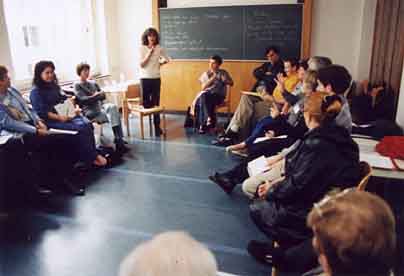 |
|
|
Workshop |
|
|
|
|
|
|
|
|
|
|
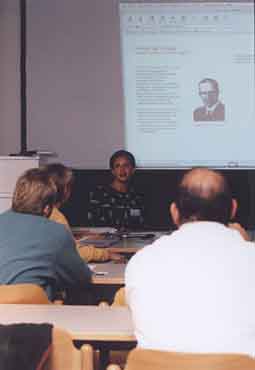 |
|
|
Workshop |
|
 |
|
|
|
|
|
|
|
|
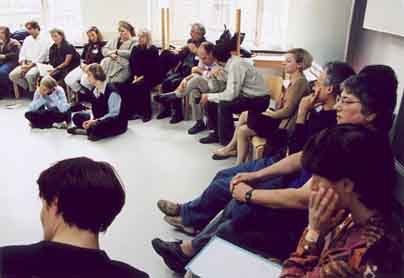 |
|
|
Workshop |
|
|
|
|
|
|
|
|
|
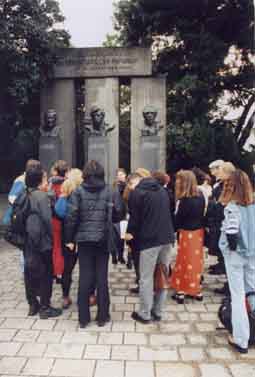 |
|
|
City walk |
|
|
|
|
|
|
|
|
|
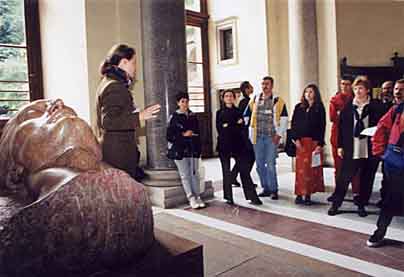 |
|
|
City walk |
|
|
|
|
|
|
|
|
|
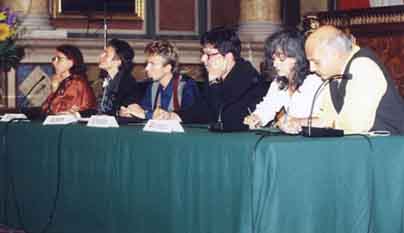 |
|
|
Organisers |
|
|
|
|
|
|
|
|
|
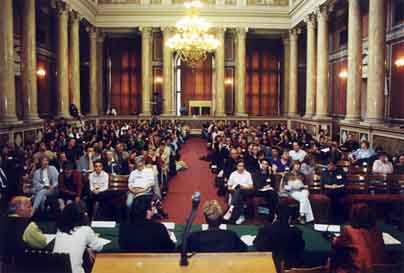 |
|
|
Closing session |
|
|
|

















